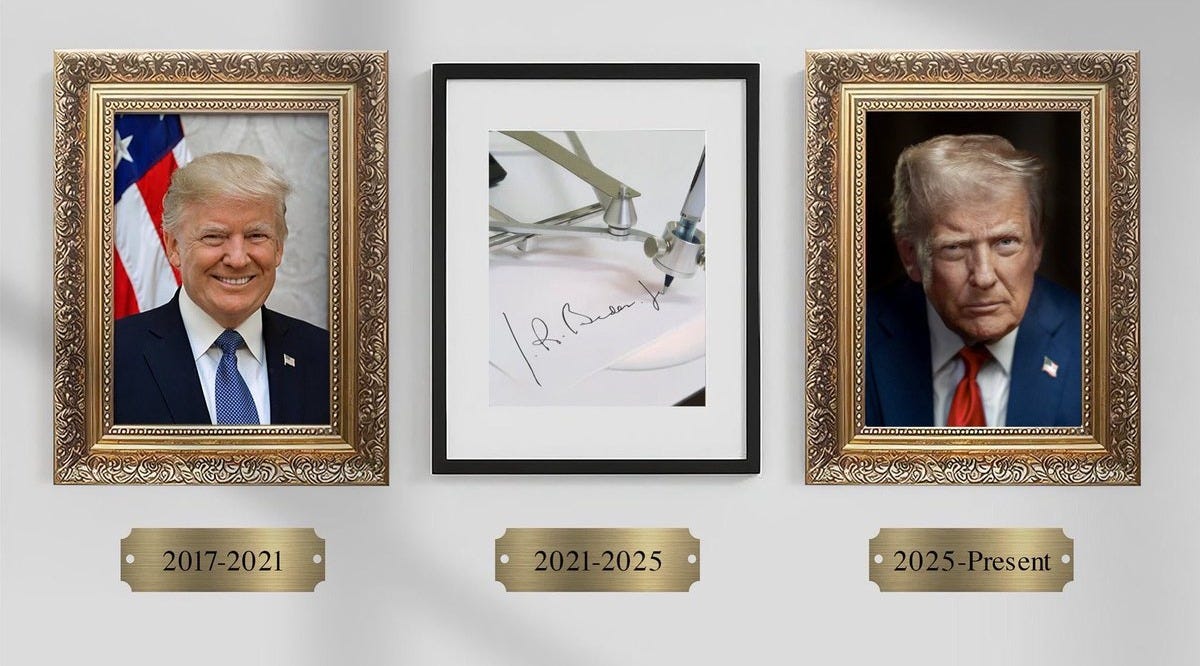Introduction to The Autopen Scandal | When a Machine Signs for the President and Nobody Knows Who Gave the Orders
Congressional investigators close in on Biden's inner circle as former aides lawyer up and refuse to answer basic questions about who controlled the autopen during the president's cognitive decline
What if a machine was signing for the President of the United States, and no one knew who was giving the orders?
During a recent visit to Monticello, I found myself captivated by a peculiar device sitting on Thomas Jefferson's desk: a polygraph. Not the lie detector you're thinking of, but an contraption that allowed Jefferson to create perfect copies of…




